Key Skills to Assess in a CNC Machinist Interview
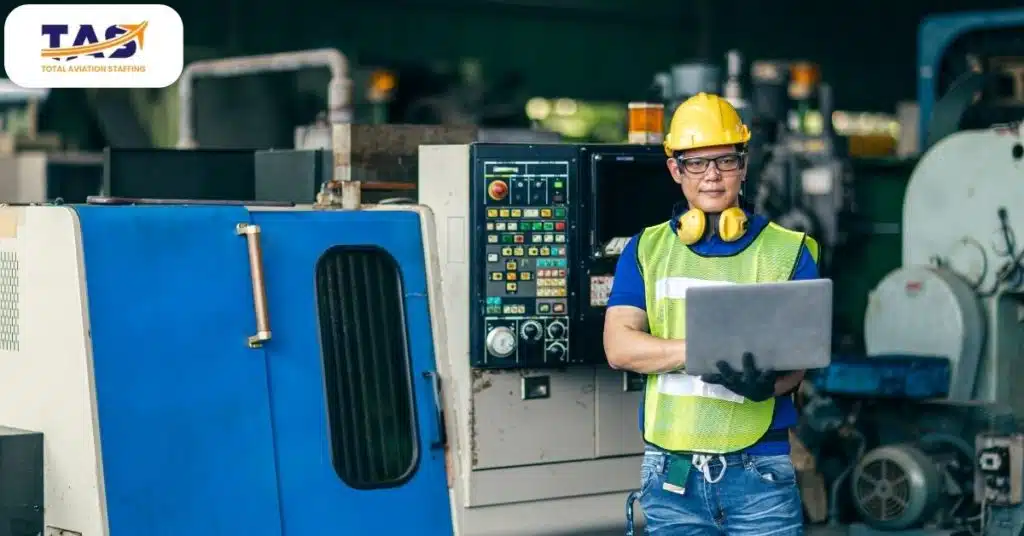
Are you in the process of hiring a CNC machinist? Ensuring you assess the right skills during the interview is crucial to finding the best candidate for the job. CNC machining requires a unique set of abilities, ranging from technical proficiency to problem-solving and communication.
Let us explore the key skills to assess in a CNC machinist interview. By focusing on these essential competencies, you can identify candidates who possess the necessary qualities to excel in this demanding and dynamic field. Let’s dive in and discover the key skills that will help you find your ideal CNC machinist candidate.
1. CNC Setup and Operation
Assessing CNC setup and operation skills is crucial in the aviation industry to ensure precision, efficiency, and safety. With complex components and strict quality standards, skilled CNC machinists play a vital role in maintaining the industry’s high standards.
Assessing CNC setup and operation skills offers several benefits:
Precision and Quality: Accurate CNC setup and operation are essential for producing intricate aviation parts with precise measurements and tight tolerances.
Efficiency and Productivity: Efficient setup and operation techniques enable faster machining processes, reducing production time and costs while meeting demanding deadlines.
Safety Compliance: Proper setup and operation practices ensure the safety of personnel, equipment, and the integrity of the finished aviation components.
Equipment Optimization: Skilled CNC machinists can maximize the capabilities of advanced machinery, utilizing cutting-edge features to enhance performance and output.
Error Prevention: Thorough assessment of setup and operation skills minimizes the risk of errors, such as tooling mistakes or incorrect machining parameters, which can lead to costly rework or scrap.
To assess CNC setup and operation skills effectively, the following methods can be employed:
Practical Demonstrations: Evaluate candidates’ ability to set up and operate CNC machines through hands-on tasks, analyzing their proficiency in tooling changes, program loading, and machine calibration.
Blueprints and Specifications: Assess candidates’ comprehension of blueprints, engineering drawings, and part specifications to ensure accurate interpretation and application during setup and operation.
Problem-Solving Scenarios: Present candidates with simulated machining challenges or troubleshooting scenarios to gauge their ability to identify and resolve issues promptly and efficiently.
Knowledge-Based Assessments: Conduct written or oral exams to test candidates’ understanding of CNC machining principles, programming fundamentals, safety protocols, and quality control procedures.
Past Experience and References: Review candidates’ previous work experience, including CNC setup and operation roles, and obtain references to assess their track record, reliability, and ability to work within aviation industry standards.
By meticulously evaluating CNC setup and operation skills, the aviation industry can soar to new heights with expert machinists who craft components with finesse, efficiency, and safety. This rigorous assessment process ensures that CNC maestros meet the industry’s lofty standards, propelling aviation manufacturing to new frontiers of advancement and innovation. So buckle up and let these skilled operators take your aerospace dreams to the sky!

2. Technical Competence
Assessing the technical competence of CNC machinists in the aviation industry is crucial to maintain the highest standards of precision and safety. With the complexity of aviation components and the need for adherence to stringent specifications, evaluating the technical skills of CNC machinists ensures optimal performance and reliability.
Assessing the technical competence of the candidate offers several advantages:
Industry Standards Adherence: Evaluating technical competence ensures compliance with stringent aviation industry standards and regulations.
Machining Knowledge: Assessing candidates’ proficiency in CNC programming, tool selection, machine operation, and maintenance guarantees their understanding of the machining process.
Material Expertise: Knowledge of various aerospace materials and their specific machining requirements is essential to produce components with optimal strength and performance.
Problem-Solving Skills: Evaluating candidates’ ability to troubleshoot machining issues and adapt to unexpected challenges demonstrates their technical competence.
Implementing a thorough assessment of technical competence for CNC machinist candidates within the aviation industry is crucial for securing skilled professionals who possess the necessary knowledge, expertise, and adaptability. This meticulous evaluation process plays a vital role in upholding the safety and efficiency of aviation manufacturing. With skilled CNC machinists at the forefront, the industry can continue to thrive, delivering exceptional quality and maintaining the highest standards for the aviation sector.
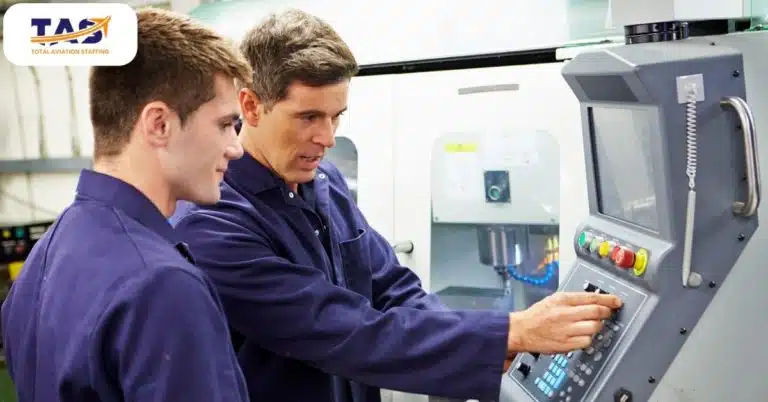
3. Problem-Solving
When it comes to the field of CNC machining in the aviation industry, one key aspect stands out above all else: problem-solving skills. The ability of CNC machinists to effectively navigate complex challenges, adapt to unexpected situations, and maintain efficiency in the manufacturing process is of utmost importance. Consequently, assessing these problem-solving skills during interviews becomes an essential step in securing skilled professionals who can thrive in this demanding and ever-evolving industry.
To evaluate problem-solving skills in CNC machinist interviews, consider the following approaches:
Case-Based Questions: Pose hypothetical scenarios related to CNC machining and ask candidates how they would approach and solve the problems presented.
Experience-Based Examples: Request candidates to share specific examples from their previous work experience where they successfully resolved complex machining issues.
Analytical Thinking: Present candidates with real-world manufacturing challenges and assess their ability to analyze the problem, identify root causes, and propose solutions.
Collaboration and Communication: Evaluate candidates’ teamwork and communication skills by inquiring about their experience collaborating with colleagues to solve machining problems.
Adaptability and Creativity: Ask candidates about instances where they had to think on their feet and find creative solutions to unexpected issues during CNC operations.
Remember, when it comes to CNC machining in the aviation industry, problem-solving skills are the wings that keep everything flying smoothly. By employing these approaches in your interviews, you can uncover the candidates who possess the ability to navigate the complexities of CNC machining, adapt to unforeseen challenges, and maintain efficiency in this demanding field. So, gear up, ask the right questions, and let problem-solving prowess take flight as you find skilled professionals who will soar above expectations in the world of CNC machining.
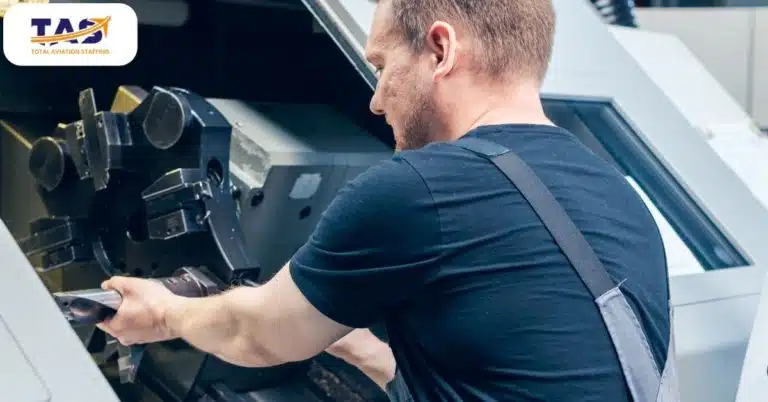
4. Safety Awareness
In the world of the aviation industry, prioritizing safety is paramount. Ensuring the well-being of CNC machinists and minimizing risks in the manufacturing process are key responsibilities. That’s why assessing safety awareness during interviews is crucial. By gauging candidates’ commitment to maintaining a safe working environment, you can identify professionals who not only possess the technical skills but also understand the importance of safety in this high-stakes industry.
Here are some of the benefits of assessing the safety awareness of the candidate:
Risk Prevention: Evaluating safety awareness ensures machinists prioritize the identification and mitigation of potential hazards in CNC operations.
Equipment Handling: Awareness of safety protocols guarantees proper handling and operation of CNC machinery to prevent accidents and injuries.
Hazard Identification: Assessing safety awareness helps machinists recognize and address potential hazards associated with materials, tools, and processes.
Adherence to Standards: Safety-conscious machinists follow industry regulations and best practices, ensuring compliance and minimizing legal and operational risks.
Emergency Preparedness: Evaluating safety awareness includes assessing machinists’ knowledge of emergency procedures and their ability to respond effectively in critical situations.
By assessing safety awareness during interviews, you can secure skilled machinists who not only navigate the intricacies of their craft but also soar high in their commitment to a safe working environment. From preventing risks to handling equipment with finesse, and from identifying hazards to adhering to standards, these candidates bring the wings of safety to every manufacturing endeavor.
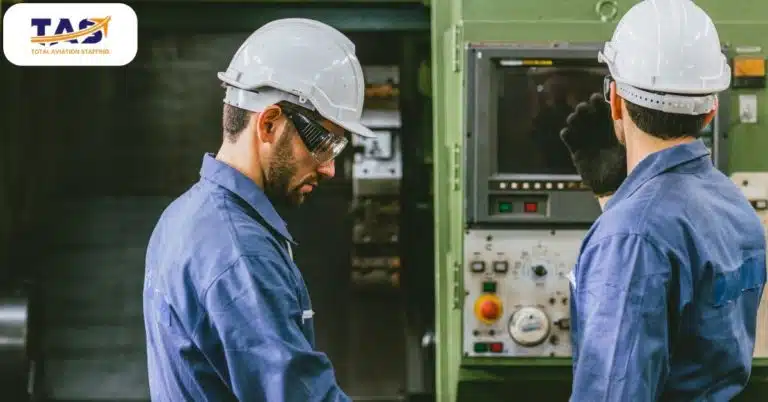
5. Mathematical and Mechanical Skills
In the world of CNC machining, precision, and proficiency are the cornerstones of success. That’s why assessing the mathematical and mechanical skills of CNC machinists during interviews is crucial. From intricate calculations to meticulous measurements, and from harnessing the power of machining equipment to produce exceptional results, these skills are the gears that drive the industry forward.
To evaluate mathematical and mechanical skills in CNC machinist interviews, consider the following approaches:
Calculation Exercises: Present candidates with mathematical problems related to machining operations and assess their ability to solve them accurately and efficiently.
Measurement Assessment: Provide candidates with sample parts and ask them to measure critical dimensions using measuring instruments, evaluating their accuracy.
Blueprint Analysis: Inquire about candidates’ experience in interpreting complex blueprints, identifying geometric dimensions and tolerances (GD&T), and understanding machining requirements.
Equipment Familiarity: Assess candidates’ knowledge of different types of CNC machines, their mechanical components, and their ability to troubleshoot common issues.
Past Projects: Ask candidates to describe previous machining projects they have worked on, highlighting the mathematical and mechanical skills utilized.
With this evaluation process, rest assured that your machinists are well-equipped to soar above and beyond, meeting the sky-high standards of precision and quality in aviation manufacturing. Get ready to witness the power of mathematical wizardry and mechanical mastery in action!
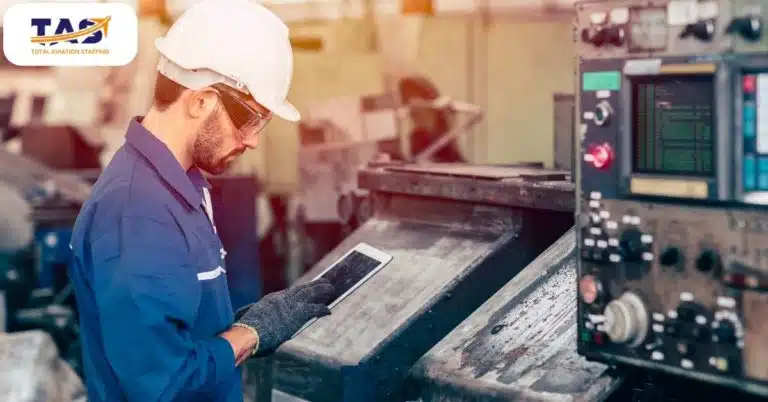
6. Attention to Detail
Assessing the attention to detail of CNC machinists in interviews is crucial as it ensures their ability to meticulously execute machining tasks, accurately interpret specifications, and maintain the highest level of quality standards. CNC machining involves intricate processes where even minor errors can have significant consequences, affecting the functionality and safety of aerospace components.
Machinists with exceptional attention to detail can identify subtle variations in measurements, spot potential defects, and meticulously follow instructions, minimizing the risk of errors, rework, and scrap. By evaluating attention to detail, the aviation industry can select candidates who possess the precision and meticulousness necessary for producing precise and reliable aerospace components.
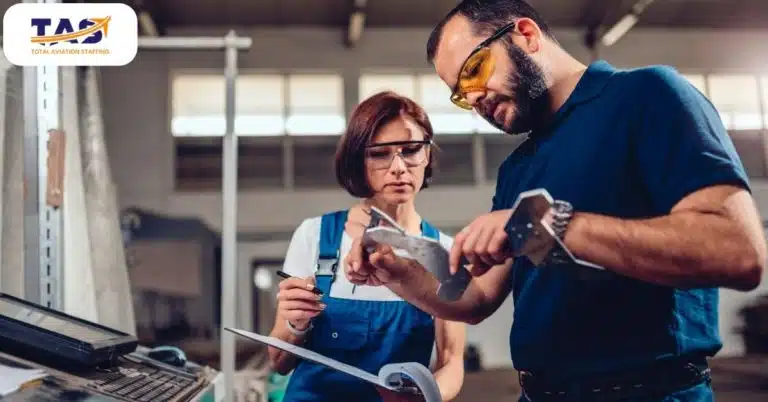
7. Communication and Teamwork
Effective assessment of communication and teamwork skills in CNC machinists during interviews is essential to ensure seamless collaboration, clear instructions, and efficient problem-solving. CNC machining often requires coordination with team members, engineers, and supervisors to achieve production goals and maintain quality standards.
Machinists with strong communication skills can convey information accurately, ask relevant questions, and provide updates on project status. Additionally, effective teamwork enables machinists to contribute their expertise, share knowledge, and work together towards common objectives.
Evaluating communication and teamwork skills ensures that CNC machinists can thrive in a collaborative environment, fostering a culture of effective communication, and maximizing productivity in the aviation industry.
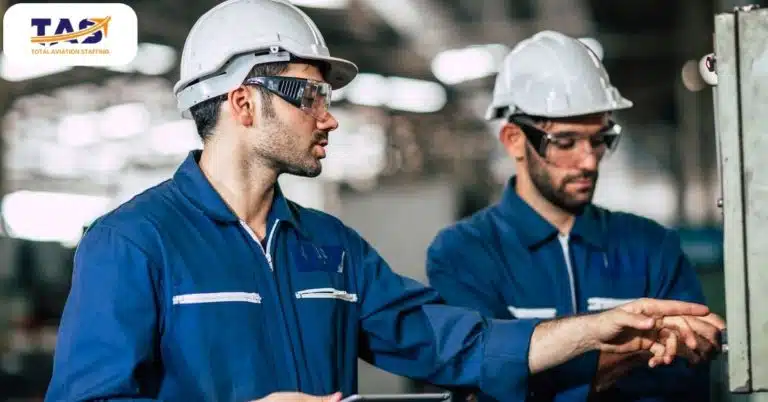
8. Adaptability and Learning Agility
The assessment of adaptability and learning agility in CNC machinists during interviews is crucial to ensure their ability to thrive in a rapidly changing manufacturing landscape. CNC machining technology evolves continuously, requiring machinists to adapt to new software, tools, and processes.
Machinists who demonstrate adaptability can quickly adjust to unforeseen challenges, changes in production demands, and emerging technologies. Moreover, learning agility allows machinists to continuously acquire new knowledge, upgrade their skills, and embrace innovative techniques.
Remember, in the ever-evolving realm of CNC machining, adaptability, and learning agility are the secret ingredients that keep machinists ahead of the curve. By assessing these qualities during interviews, you’ll uncover the candidates who can dance effortlessly with change, tackle production demands with finesse, and embrace technological shifts with a wink. So, gear up for the dynamic manufacturing landscape and find those CNC machinists who can pirouette their way to success.
.webp)
Takeaways
Remember, finding the perfect CNC machinist is no walk in the park. When conducting interviews, pay close attention to crucial skills such as technical competence, problem-solving abilities, safety awareness, mathematical and mechanical aptitude, attention to detail, and communication and teamwork. These skills are the building blocks of a top-notch CNC machinist. So, put on your problem-solving cap, and assess those skills like a pro. Your search for the ultimate CNC machinist is about to get precise and productive!
Ready to find the ultimate CNC machinist for your team? Don’t settle for anything less than excellence. Partner with Total Aviation Staffing, your go-to aerospace staffing agency. With our top-tier talent pool and comprehensive staffing solutions, we’ll help you secure the best candidates in the aviation and aerospace industries. Transform your staffing strategy and elevate your operations with our expertise. Reach out to Total Aviation Staffing today and take your team to new heights!
